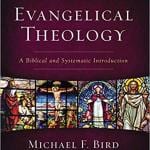Peter Enns
Inspiration and Incarnation: Evangelicals and the Problem of the Old Testament.
Second edition.
Grand Rapids: Baker Academic, 2015.
Available from Baker.
Review by Dr. Jill Firth,
This ‘tenth anniversary edition’ is slightly revised from the original, 2005 edition, which was written ‘firmly and self-consciously in support of a “progressive inerrantist” or “genre inerrantist” point of view. Enns notes in the Preface to this revised edition that he no longer uses the term “inerrancy” due to the ‘accumulated cultural baggage’, but that he and the publishers agreed to leave the book ‘essentially as it is.’ Citing Ridderbos, Enns defines inerrancy as ‘an expression of faith and trust in God, that whatever the Bible does, no matter how it might or might not fit into preconceived categories, reflects the “free pleasure of God.”’
Inspiration and Incarnation focuses on three issues that engage both popular and scholarly readers of the Old Testament: the relationship of the Old Testament and Ancient Near Eastern literatures, theological diversity in the Old Testament, and the way that New Testament authors handle the Old Testament. These topics raise questions of the uniqueness, integrity, and interpretation of the Old Testament. Enns proposes a model of incarnation, that the bible is both a human and a divine book. It is the human aspects of the writing of Scripture that may create problems for readers, but its ‘situatedness’ is also good news for us, because the connectedness of the bible to the times when it was written ‘is a necessary consequence of God incarnating himself.’ Some overemphasise the human dimension of scripture, and others are troubled by the human dimension .In fact, ‘It is essential to the very nature of revelation that the Bible is not unique to its environment. The human dimension of Scripture is essential to its being Scripture.’ Enns invites the reader to consider ‘not whether the Bible is God’s word but to see more clearly how it is God’s word.’
There are five chapters, ‘Getting Our Bearings’, ‘The Old Testament and Ancient Near Eastern Literature’, The Old Testament and Theological Diversity’, ‘The Old Testament and its Interpretation in the New Testament’, and ‘The Big Picture.’
In a final ‘Postscript’ which is added in the 2015 edition, Enns reflects on the role of ‘boundary markers’ in the evangelical faith community, which he critiques as a threat to theological synthesis. Enns notes that the analogy between the divine and human natures of Christ and Scripture goes back ‘at least as far as Athanasius’, and considers this approach as a helpful way forward in understanding the text. He responds to critiques of the incarnational analogy by stressing that it is an analogy – he agrees that the hypostatic union of divine and human natures in Christ is unique, but suggests that as a model or parallel, incarnation can aid understanding of the nature of Scripture. Similarly, Paul’s midrashic hermeneutic ‘is firmly at home’ in Second Temple Judaism, and this is part of God’s ‘condescension’ to communicate in meaningful ways within culture.
Each chapter has suggestions for further readings. The book concludes with a glossary which will be of especial use to the general reader or beginning student, a Scripture index and a subject index.
Peter Enns writes with clarity and conviction, and a concern for people in the pew who seek help to make sense of their bible reading. Enns draws on scholarly resources, while making his arguments accessible to the general reader and beginning student. As he acknowledges in the Postscript, some of the issues he raises in this book are of concern in America, but less so in other Bible reading communities such as the UK (and Australia). It is not necessary to agree with all the book’s arguments to benefit from this thoughtful treatment of important topics in biblical scholarship.
Jill Firth is a Lecturer in Hebrew and Old Testament at Ridley College in Melbourne. Her current research is in Psalms and Jeremiah.












